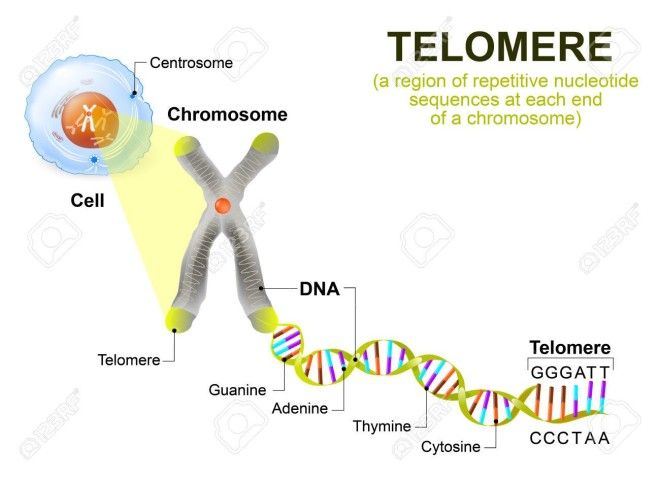Senescence, or biological aging, refers to the gradual deterioration of living tissue, and is often caused by the degradation of genetic material, which tends to suffer wear and tear each time a cell divides. However, according to the new paper, the effects of childbirth may have a positive impact on this process by limiting damage to DNA.
Publishing their findings in PLOS ONE, the study authors explain how features called telomeres were found to be longer among those women in their sample who had had more children. Telomeres are DNA sequences found on the ends of chromosomes, and essentially act as a protective shield for the genetic information contained on that chromosome. This is because they prevent these chromosomes from reacting with other material and becoming warped.

However, each time a cell divides, these telomeres shorten slighty until eventually they no longer function. When this occurs, the cells containing these chromosomes are no longer able to divide, causing tissue to die. For this reason, telomere length is an important marker
of senescence.
To conduct their study, the researchers looked at information taken from 94 Guatemalan women, all of whom were from rural Kaqchikel Mayan communities. This data was initially collected in 2000 as part of the Society, Environment and Reproduction study, and contained details regarding the length of the women’s telomeres.
The researchers then collected genetic samples from the same group of women 13 years later, before cross referencing changes in telomere length with the number of children each woman had. Surprisingly, they discovered that those who had the most children tended to have longer telomeres.

Telomeres are found on the ends of chromosomes, but shorten over time. Telomeres by AJC ajcann.wordpress.com via Flickr. CC BY-SA 2.0
Advertising
This contradicts pre-existing theories, which state that reproduction speeds up biological aging, since childbirth and child-rearing both require high amounts of energy, and therefore leave less available for tissue maintenance.
By way of explanation, the authors suggest that the limited damage to telomeres caused by reproduction may be down to the steroid estradiol, which has an antioxidant effect, potentially protecting telomeres from damaging oxidative stress. This is caused by highly reactive molecules called reactive oxygen species, although dramatic increases in estradiol help to mitigate the damaging effects of these molecules.
Additionally, the researchers propose that the social structure of their subjects’ communities may play a part in generating these results. Within Kaqchikel Mayan villages, women who have more children tend to accrue greater social status and therefore receive more communal assistance and welfare. As such, they are required to expend less energy, meaning more energy remains available for tissue maintenance.
Consequently, the authors are keen to stress that this phenomenon may not necessarily apply to all women, and are therefore calling for similar studies to be conducted on other ethnic groups, in order to see if these results can be replicated.

